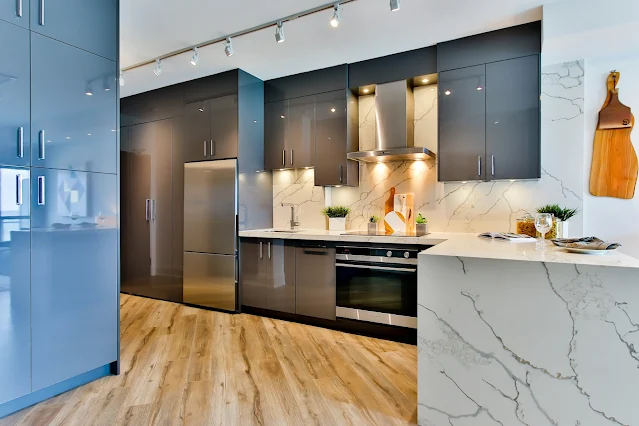A zero-waste kitchen isn’t just about reducing plastic and composting food scraps—it’s also about creating a clean, well-maintained space that naturally deters pests. Unwanted visitors like ants, rodents, and cockroaches are often drawn to food scraps, improperly stored ingredients, and lingering moisture. Keeping them out requires a mindful approach to food storage, waste reduction, and sustainable pest control methods.
While natural deterrents and eco-friendly storage solutions can help prevent infestations, sometimes professional intervention is necessary. If you're dealing with persistent pest problems, finding a service that aligns with sustainable values is crucial. For those living in the Bay Area, pest control in San Francisco CA offers responsible, environmentally friendly solutions that address infestations without harming the planet.
Storing Food Sustainably to Prevent Pests
One of the best ways to keep pests at bay is proper food storage. Many insects and rodents are attracted to easily accessible food, whether it’s dry grains in an open bag or fresh produce left uncovered on the counter. Switching to airtight, reusable containers made of glass or stainless steel not only keeps food fresh longer but also eliminates entry points for pests. Mason jars, silicone-sealed containers, and beeswax wraps are great alternatives to plastic packaging, which can sometimes be chewed through by determined critters.
Buying in bulk is another excellent way to reduce waste and minimize the chances of attracting pests. By transferring bulk grains, nuts, and dried goods into secure, pest-proof containers as soon as you bring them home, you prevent pantry moths or weevils from becoming a problem. Keeping the pantry organized and inspecting food regularly for any signs of infestation ensures that pests don’t have the opportunity to settle in.
Reducing Waste to Eliminate Pest Attractions
A zero-waste kitchen is inherently cleaner than a conventional one because it prioritizes mindful consumption and minimal waste. However, even small amounts of food scraps, crumbs, or improperly composted materials can attract pests. Maintaining a consistent cleaning routine, wiping down surfaces after every meal, and ensuring that dishes are washed promptly help eliminate food sources that might otherwise invite unwelcome guests.
Composting is an essential part of a sustainable kitchen, but it requires careful management to avoid attracting pests. If compost is stored indoors, it should be in a tightly sealed bin with a carbon-rich balance to prevent odors. For outdoor composting, choosing a secure, rodent-proof bin and turning the compost regularly helps keep pests away while maintaining healthy decomposition.
Maintaining a Pest-Free, Zero-Waste Kitchen Naturally
Using natural repellents can further protect a kitchen from unwanted visitors. Many essential oils, such as peppermint, eucalyptus, and citronella, work as deterrents for common household pests. A simple mixture of vinegar and water can also be an effective cleaning solution that repels ants and other insects while keeping surfaces disinfected.
Sealing cracks, gaps, and potential entry points is another crucial step in sustainable pest prevention. Pests often enter through tiny openings in walls, around pipes, or through poorly sealed doors. Identifying and sealing these spaces with non-toxic caulking or weather stripping ensures that they don’t have a way in.
If an infestation does occur, choosing eco-friendly pest control methods ensures that the problem is resolved without introducing harmful chemicals into your home. Working with sustainable professionals who use integrated pest management (IPM) techniques, such as pest control in San Francisco CA, helps tackle infestations effectively while prioritizing environmentally safe solutions.
A Zero-Waste Kitchen is a Pest-Free Kitchen
Sustainability and cleanliness go hand in hand when it comes to maintaining a zero-waste kitchen. By storing food securely, reducing waste, and implementing natural pest deterrents, it’s possible to keep unwanted critters at bay without compromising environmental values. Thoughtful practices like composting correctly, sealing entry points, and using natural repellents can go a long way in ensuring a pest-free space.
For those who need additional support in managing infestations, choosing responsible and sustainable pest control services ensures that both the home and the planet remain protected. A well-maintained kitchen not only supports a waste-free lifestyle but also fosters a healthier, pest-free environment for all.


Add your comment